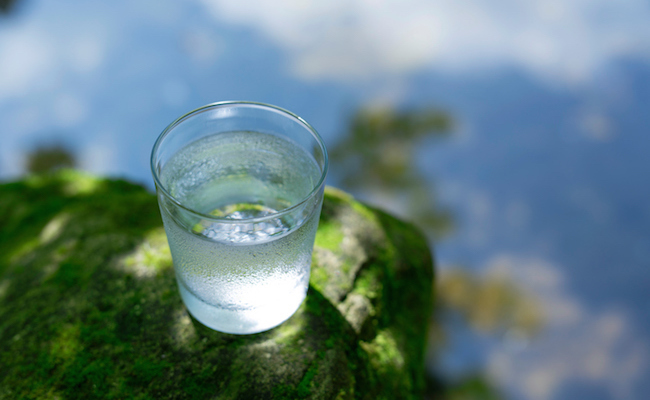One of the most commonly held beliefs in the world of diet and fitness is that drinking lots of water can help you lose weight. Whether by appetite suppression, energy enhancement or improved digestion and nutrient absorption, for years all sorts of people have been claiming that water really is a key component to reaching their goal weight and maintaining it too.
Now it seems that there’s some real merit to those claims. A recent study from the University of Michigan found that drinking more water and consuming more foods with a high water content (such as fruits and vegetables) were associated with good weight management.
Researchers took data from nearly 10,000 adults aged 18 to 64 who participated in a national survey that examined nutritional habits. Urine sample data was studied to identify urine concentration, which revealed how hydrated each participant was. Their hydration levels were then compared to their body mass indexes (BMI).
It turns out that the less hydrated a participant was, the more likely they were to have a higher BMI. Those who were less hydrated were also 60 percent more likely to be obese compared to those who were more properly hydrated.
The results are certainly interesting, but this particular study only proves that there’s a link between good hydration and healthy weight management. The people who were heavier may have been less hydrated because of the less healthy foods they chose to eat or their lower activity level, while those who were at healthier weights may have been naturally more inclined to eat more water-rich foods like fruits and veggies. Slim and well hydrated people may also be more naturally active — a good motivator to drink up.
Previous research has shown that “preloading” with water before sitting down to eat a meal can have moderately favorable effects with weight loss efforts in obese individuals. The common belief behind this is that thirst can often disguise itself as hunger, so drinking water before eating may be able to help bring hydration levels back up and eliminate any strong hunger sensations that aren’t in fact stemming from actual hunger.
There’s still a lot of research to be done on how water intake affects hunger and weight loss efforts. It’s extremely difficult to take thirst and hunger measurements from an objective standpoint since everyone experiences these sensations differently and there are all sorts of other variables that influence those sensations.
While more concrete scientific evidence may still be lacking, it certainly wouldn’t hurt to take a few sips or even drink a full glass of water before eating — especially if you’ve gone more than an hour or two without drinking anything. That common rule of eight glasses of water a day isn’t really relevant given that everyone has different hydration needs according to their age, height, weight, activity level and other lifestyle factors, but here are a few good ideas to keep in mind:
- Drink water immediately upon waking up to rehydrate after not drinking or eating anything for several hours while you were asleep.
- Sip on water continually throughout the day. Take a reusable water bottle with you everywhere you go.
- Pay attention to the color of your urine. The clearer it is, the more hydrated you are. The yellower it is, the more water you’ll need to drink to rehydrate.
- Increase your intake of fresh fruits and veggies with high water content like watermelon, cantaloupe, celery, cucumber, leafy greens, and others.
- Increase your water intake on days where your activity level is prolonged or higher in intensity.
As a final note, remember that increasing water intake alone isn’t a complete weight loss or weight management solution. Aim to integrate it with a well-rounded healthy lifestyle and it may just help you in your efforts.










